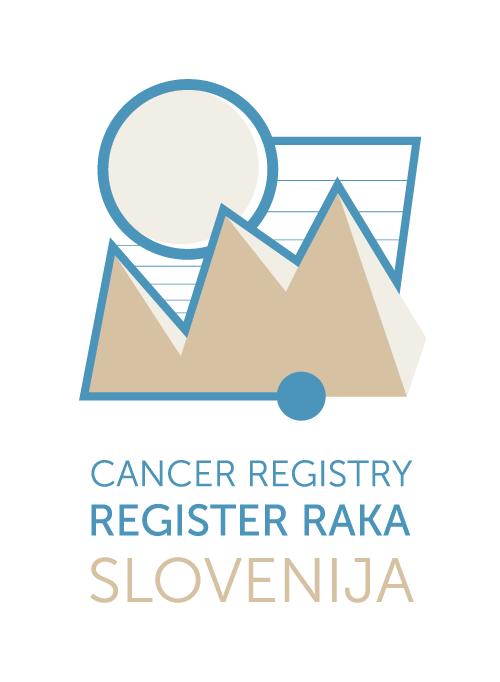- In 2022, around 19,000 Slovenians were diagnosed with cancer, more than 10,000 men and almost 9,000 women. Of these, 5,500 patients were diagnosed with non-melanoma skin cancer. This year's report introduces additional reporting on all cancers excluding non-melanoma skin cancers, enabling direct international comparison of indicators. Non-melanoma skin cancers are common, usually non-fatal, and mostly treated in outpatient facilities, often in private institutions with incomplete reporting of cases, and are therefore excluded from many countries' cancer statistics.
- About 6,300 Slovenians (3,500 men and 2,800 women) died of cancer in 2022.
- Currently, there are already over 136,000 people living in Slovenia who have been diagnosed with cancer at some point in their lives (prevalence).
- Among those born in 2022, one in three Slovenians are expected to develop cancer by the age of 75. The risk of developing cancer increases gradually with age and is highest among the elderly population; of all cancer patients diagnosed in 2022, 64% were over 65 years old. As the Slovenian population is ageing, the number of new cancer cases is expected to increase simply on account of the growing proportion of elderly people.
- In 2022, the most frequent cancers in Slovenia (prostate, lung, breast, colorectal and melanoma) accounted for 54% of all diagnosed cancers. These cancers are associated with unhealthy lifestyle: smoking, alcohol consumption, unhealthy diet, lack of physical activity, overweight and obesity, and excessive sun exposure – primary prevention measures should be in place with the aim to reduce their burden.
- The number of new cases in 2022, in the third year of the Covid-19 epidemic, is much higher compared to the year 2021, mainly due to changes in the method of data collection in the Cancer Registry, which contributed to an increase in the incidence of non-melanoma skin cancer and melanoma. Nevertheless, part of the increase can still be attributed to the shortfall caused by the Covid-19 epidemic, which we observed in 2020.
- Cancer screening programmes recommended by the Council of the European Union (EC) that have been introduced in Slovenia could lower mortality from breast, colorectal and cervical cancer through early detection; in addition cancer incidence for colorectal and cervical cancers has already been reduced.
- The five-year net survival of adult Slovenian patients with any type of cancer who were diagnosed in the 2018–2022 period was 59% in men and 64% in women.




